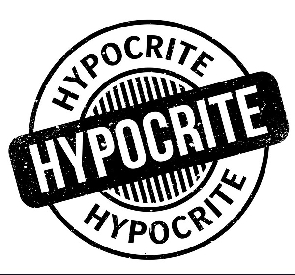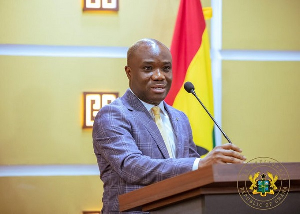I can understand why many people are celebrated only after they have died, and enough time has passed to consider their achievements on the one hand and their failures on the other. The downside to this approach, however, is that they won’t be around to provide context to issues that need to be clarified. For example, there are heroes who upon their demise, were discovered to have had extramarital affairs some of which occurred at the same time in their lives when they achieved iconic feats and preached virtue. What happens to their legacy?
Do we do the math and if they are still left with a positive number of virtues or achievements maintain their legacy and if they are on the other side of the number line, cancel them out? And what weight do we attach to virtue? Should it be the same as a vice? Madiba readily comes to mind.
Had allegations not been made about Bill Cosby whilst alive, and only came out after his death, would he have had a right to a fair trial in the law courts of our judgmental minds? How about those who were cleared of wrongdoing years after their death?
Have you ever heard an allegation for the first time and agreed with the conclusion? We all have. And have you never changed your mind after hearing clarification and rued what usually is considered a hasty conclusion based on a one-sided account? Again, I have.
Aren’t we all hypocrites in one form or another? Whilst we would like others to listen to not only allegations but also the reason, for the justification when we are involved, we quickly conclude when against others allegations are levelled, based on our biases.
Aren’t we all hypocrites?
When there is a fundraising request on social media, to assist a person in need who has been involved in an accident and needs to fund amputation and fitting of a prosthesis, what happens? Tears well up in our eyes and our hearts race. We start to imagine the many dependents who will be affected by the loss of the father’s limbs. Without hesitation, we draw our phones from their sheaths, enter the amount and code and then wipe our tears. And then all goes well. We then read the THANK YOU message and feel proud of our heroics. We give without questioning.
On the other hand, what do we do when a beggar approaches us on the street? First, we decide whether he ought to be on the street in the first place of deformity or infirmity. If we decide they do not deserve our hard-earned cash, we sometimes pompously admonish them to leave the streets and go and find work. What if that beggar didn’t have access to a social media fundraiser when he was involved in an accident and had to bear the cost of amputation, digging a huge debt hole for himself, sold his house, and is now on the street trying to recover? You saved the former from begging openly but won’t help out another who funded treatment and now wants to get back on his feet.
Aren’t we all hypocrites?
We help that needy student in school, one we may never have met. We sometimes pay their fees and add a monthly stipend. We ask no questions. We thrive on the categorical imperative in this instance, where the good lies in helping the needy.
‘If he succeeds, he will help a lot more people’ we say, adding a teleological justification.
Yet a distant relative in need asks for help to register for an exam. We ask what his parents used their money for whilst they were in active service. We criticize him for not taking up a menial job to support himself. We narrate the many challenges we are facing and end up giving a tenth of the requested amount, directing him or her to other relatives to make up for what is left.
What if the former’s father was a drunkard and the mother a whore? Would it change our approach? But we don’t ask. We don’t want to know. We are just good people who want to help. Yet we help based on our standards of who is deserving and who isn’t.
Aren’t we all hypocrites?
You know how it feels like hearing disparaging remarks about your religious leader. When you hear this blurted over megaphones, your heart aches. You wish you could get over there and correct the contradictions being poured out over high decibels. But no! It is his platform. And you have no way of contesting that.
You are at your religious programme and after your appetite to worship and proselytize is whipped up, your leader starts spewing disparaging remarks about an opposing leader or sect and you can’t count how many goosebumps you have had over 5 mins. And all this is in a densely populated suburb with many people opposing your views. It feels different. You are on the right path, so the others must necessarily hear your pastor or imam’s preaching. You so dearly want to save their souls at 11 pm on a Saturday.
Aren’t we all hypocrites?
You’re an intellectual with the NDC party. You support the republican party because it is closer to God and the Godly. You can make allowance for Trump’s supporters due to your religious beliefs, but can’t stand your friend Kwame for voting for NPP all his life.
Aren’t we all hypocrites?
Many of us were very active on national and international issues. We had the enthusiasm to write and comment on a wide range of issues. We were articulate. We criticized what we considered wrong and praised virtue. Why have we toned down now? Is it because our loved ones are benefitting from the same things we criticized? Is your benefactor a contractor and you know for sure he won a huge contract not based on merit but by mere association? Do you find yourself still texting your strong opinions to shows? Or you can explain.
How many people we once considered neutral are now government appointees? With what suspicious lenses must we see civil society organizations that want us to see them as neutral bodies acting in the best interest of the nation? And if you had a party card, wouldn’t you use it to gain a scholarship to study in an expensive, yet prestigious university outside the country? Of course, you are a genius, otherwise, Harvard would have overlooked you. But without that card or affiliation, would you genuinely have been picked ahead of your colleague who was smarter than you at the undergraduate level and who similarly gained admission? Or again, you can explain.
Aren’t we all hypocrites?
How did you feel watching that 19-year-old narrate his incarceration story? He stole something, which in your opinion was as petty as a mobile phone, was caught, didn’t have the money to pay back, and was handed a custodial sentence. ‘The complainant should have forgiven him,’ the narrator leads you to say. In your mind, the victim is the young man and the bad person is either the judge or the complainant who lost his mobile phone. But what if you heard the back story and it goes like this:
‘On that Saturday night, he returned home with the phone. His uncle who gave him the money to purchase it was due to pick it up the next day and hand his exam registration and school fees to him. He woke up and there was no phone. He had no fees for that term and had to drop out of school. Falling into bad company, he ended up a drug addict, robbed a police officer in plain clothing, and was subsequently run over by a car in a high-speed-chase, fractured his tibia, and had to eventually appeal for funds to fund the surgery, but in the end, died because most people heard he was a criminal.’
Who is the victim and was justice served?
And you who just sent money to that foundation to help with criminal justice reform, the report you lodged at the police station on a friend who borrowed money from you and no longer picks your call, is it lost on you that you could simply forgive and not offer our crammed prisons another inmate? Or forgiveness is for only those whose stories you only know 1% of?
Aren’t we all hypocrites?
Have you ever cringed whilst reading comments under a chieftaincy matter in Ghana or a race issue in the US? You spew hateful speech when your revered chief isn’t in the line of fire, yet call for a ceasefire when he is in the headline. How do you feel when the police kill men on the streets of Baltimore because they are black? How about Fulanis in our communities? Different strokes, right? One is known to be associated with violent crime and the other is also known to be associated with violent crime. But why do you pray for and comment on calls for reforms there whilst over here it is death to the criminal?
The optics of interracial marriages please you, yet intertribal unions displease you!
Aren’t we all hypocrites?
The more I introspect and learn, the less I value my opinions and judgments.
It is impossible not to judge. For one, we are trained to choose a side daily. In academia, we are expected to explain why we prefer this over that. It can come in the form of debate. Outside of academia, how many of us consider opinions and judge based on merit and merit only? And even within academia, isn’t there sometimes a tie?
At this point, towards the end, you are waiting for me to suggest solutions, which in themselves are a form of judgment on hypocrites. We simply haven’t given them a chance to be heard or less self-righteous, we have not allowed ourselves to be heard. Since I have admitted that I am struggling to be less hypocritical, do I stand ready to offer solutions?
Firstly, let’s just admit that we all have biases coming into discussions. It helps. Search your soul, find it, and try and work on it. You are not as neutral an arbiter as your loved ones and some praise singers would have you believe. Just do your best but have a disclaimer at the end. When there is feedback, be it directly uttered or in the form of a newspaper rejoinder, read with an open mind and respond gracefully and intellectually.
Secondly, we don’t need to have opinions on every issue. I often find journalists trying to get people to comment on a wide range of issues. I guess it is their job. Sometimes news breaks and within 24hrs, people, some of whom are called, not because of their vast knowledge but by affiliation are asked to discuss such subject matters.
Many are goaded and eventually succumb. Within 48hrs, more information comes to the fore and the one-sided, victim-blaming, name-calling, dismissive initial comments suddenly sound hasty and unintelligent. Those who wait until they have heard others speak on them and do a bit of extra digging and reading, then sound like the sages they aren’t.
Finally, I will share a story with you:
Once upon a time, in a land far, far, away, hidden behind the lush greenery, the beautiful scenery of the Akuapem mountains, lived a young boy of 10 years. Our ancestors said that the mountains themselves gave birth to him. He was nursed by the clean water from a waterfall and the cows gave him milk. He was trained by the lions themselves. He was taught how to speak by a parrot. He grew in strength and might. So mighty was he that it is said that he carved out those horizontal ridges on the Kwahu mountains with his overgrown nails. He was destined for greatness.
When he was of age, he was commanded to make contact with the outside world, for the mountains could only bring forth every century and their last child left and never returned. It was considered thereafter that, no child would be birthed, but upon seeing the ravages of war that one tribe waged against another, one last attempt was going to be made to bring justice to the world on the outside. The only thing they asked of me was to return every 5 years for a renewal of my heavenly gifts.
Here I was, with the backing of nature, roaming the forests I had never ventured into but had the knowledge, skill, and power to navigate.
I entered the first settlement. They had just been attacked. The young men were taken as slaves. Only a few women remained behind with their babies and the injured were waiting to die. This was my mission. I was going to fight for the oppressed. I picked the right herbs to heal their wounds. I commanded the birds to pick fruits and the lions to catch antelopes and deer.
Here I was, the chief of a fortified community I had led in war to so many victories, having last visited the mountains 20 years prior against their wishes. I was now also a husband and father, who had given life to others and had the responsibility to nurture them. Other warring factions could wait or save themselves. They could even destroy each other, for all I cared. I was tired. In about 70 years, the mountains could again bring forth another saviour. I was done!
By the time the Portuguese came, I was not ready to fight. I had some power taken away. I could no longer command a lightning strike. The British came with their guns and I was even weaker. It was too late to go back and fortify myself again. So, we were colonized. THE END.
I have successfully made you dislike the protagonist. But what if the true villains are the selfish mountains who needed him to show reverence by worshipping them more than saving the Gold Coast? Couldn’t they have transferred his power over a few miles?
Such is the power of a one-sided story.
Aren’t we all hypocrites?
Opinions of Tuesday, 10 January 2023
Columnist: Gubli Natogmah







![Akwatia MP, Ernest Yaw Kumi [L] and legal practitioner, Martin Kpebu Akwatia MP, Ernest Yaw Kumi [L] and legal practitioner, Martin Kpebu](https://cdn.ghanaweb.com/imagelib/pics/863/86389168.295.jpg)











